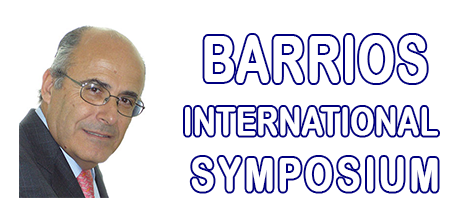ORAL
| SESSION: AdvancedMaterialsTueAM-R6 | Marquis International Symposium on New and Advanced Materials and Technologies for Energy, Environment and Sustainable Development(3rd Intl Symp. on New and Advanced Materials and Technologies for Energy, Environment and Sustainable Development) |
| Tue Oct, 24 2017 | Room: Condesa IA |
| Session Chairs: Yail Jimmy Kim; Sandra E. Rodil; Session Monitor: TBA |
12:00: [AdvancedMaterialsTueAM03] Invited
Two Stage Pyrolysis/Gasification of Solid Waste for Tar Free High Hydrogen Content Syngas Production Juma
Haydary1 ; Patrik
Šuhaj
2 ;
1Institute of Chemical and Environmental Engineering, Slovak University of Technology, Bratislava, Slovakia (Slovak Republic);
2Department of Chemical and Environmental Engineering, Slovak University of Technology, Bratislava, Slovakia (Slovak Republic);
Paper Id: 275
[Abstract] Organic solid waste, such as municipal solid waste, waste biomass, and industrial solid waste represent not only a major environmental concern but also a large source of renewable energy and chemicals. Thermo-catalytic cracking processes such as pyrolysis and gasification have great potential to convert solid waste to useful chemicals and energy, and they are preferred to combustion. However, gasification is a complex process that requires temperatures above 600°C and can be carried out in a variety of reactor types and process conditions. Although much attention has been devoted to gasification in recent years, there are still a number of challenges to full commercialization of solid waste gasification. Heterogeneity of raw materials, gas tar content and reduced efficiency are the main technical challenges.
This work deals with two stage pyrolysis/gasification of heterogenic solid waste. The process can be realized in a single compact plant or in a distanced pyrolysis network with a central gasification plant. Different configurations of two stage pyrolysis/gasification systems with great potential of producing tar free, high hydrogen content syngas from different types of hydrogenous solid waste are presented. Results of raw materials characterization by thermogravimetric (TGA) analysis, differential scanning calorimetry (DSC), elemental analysis and bomb calorimetry are discussed. Samples of MSW and waste biomass have been subject of an experimental study in a laboratory scale pyrolysis/catalytic gasification system. Gas composition and tar content of gas were observed under different process conditions. In a theoretical study, conceptual design of a pyrolysis network with a central gasification plant was done. The model provides material and energy balances of all units, phase and chemical equilibrium calculations as well as parametric sensitivity analysis of the units. Laboratory scale experiments and process computer modeling indicate that two stage pyrolysis/gasification processes can provide solutions to many technical challenges that solid waste gasification is facing.







